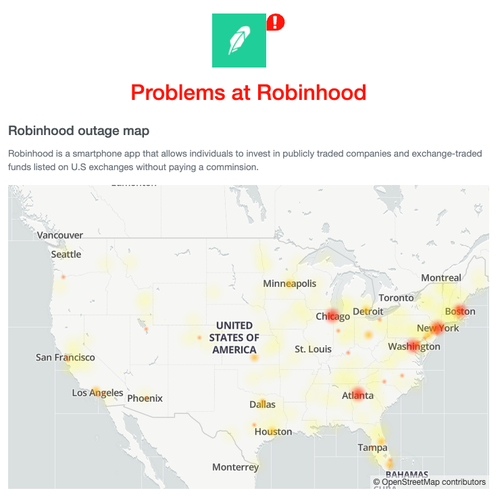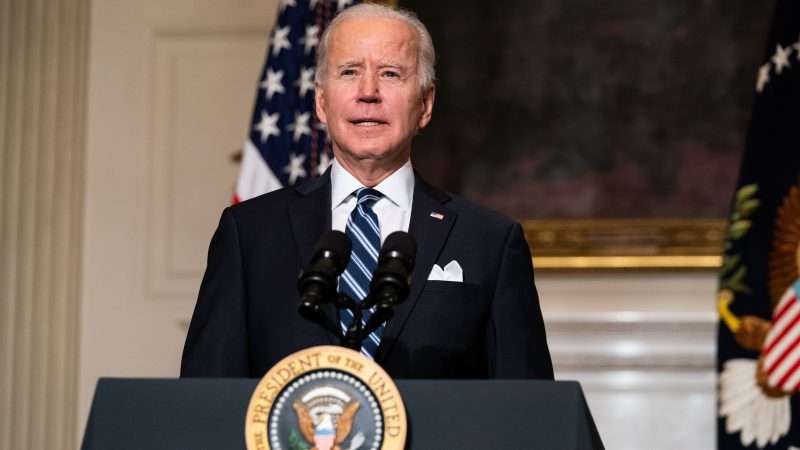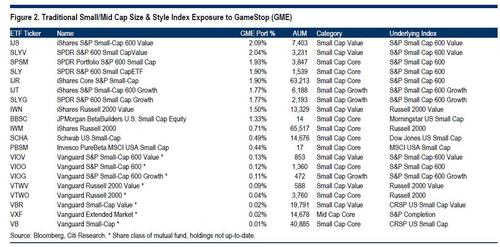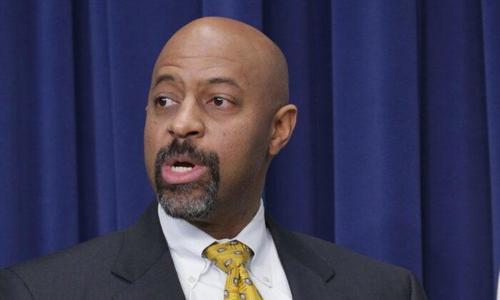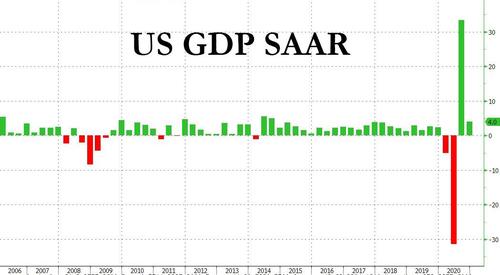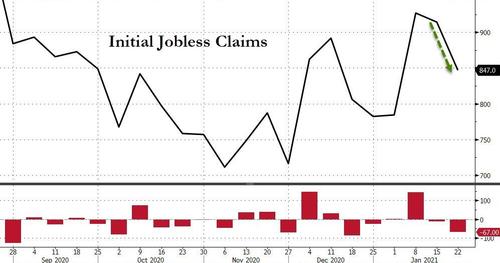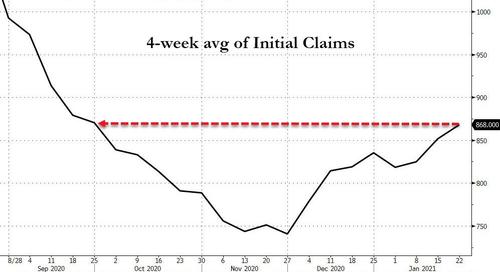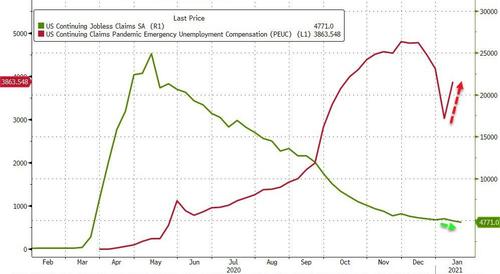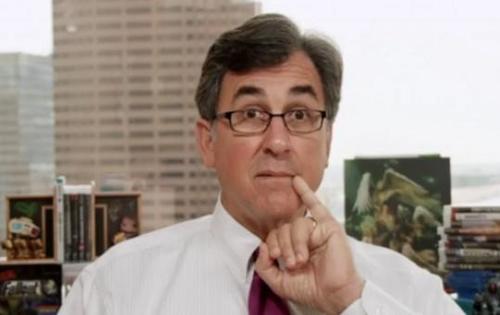Authored by Simon Black via SovereignMan.com,
Two decades ago, General Tommy Franks – commander of the original US invasion of Afghanistan back in 2001 – was asked his opinion about a civilian bureaucrat named Doug Feith.
Feith was an academic policy wonk who, despite never having served in the military, was a staunch warmonger who was happy for other people to go fight and die in foreign lands.
General Franks was a straight-talking Texan who wasted no words in his opinion that Feith was “the dumbest fucking guy on the planet.”
Over the years of this publication, I have, from time to time, submitted some candidates for what I call the ‘Tommy Franks Award’.
As you can imagine there’s pretty stiff competition for the dumbest f’ing person on the planet, especially these days. But I feel especially compelled right now to nominate the World Economic Forum.
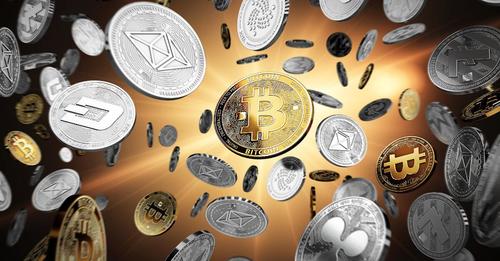
Traditionally the World Economic Forum’s annual event in Davos, Switzerland has been a pageant of wealth and power.
If you’re there, you’ve made it… at least in the eyes of the global elite; it’s nothing but billionaires and politicians. And in the past, the event was typically just photo ops and pointless speeches.
But lately the World Economic Forum has been much more active in cranking out horrifically stupid policy ideas.
For example, the Forum wants human beings (i.e. us peasants) to be conditioned to eat WEEDS and insects in order to save the planet.
The Forum’s founder Klaus Schwab also penned a book last year entitled Covid 19: The Great Reset, which pushes for a radical agenda involving Green New Deals, strict people controls, “solidarity” taxes, debt defaults, and more.
As Schwab announced last year alongside Prince Charles (who is totally relevant with respect to global economic matters),
“Every country, from the United States to China, must participate, and every industry, from oil and gas to tech, must be transformed. . . In short, we need a ‘Great Reset’ of capitalism.”
They’re not even hiding their agenda– they’re boldly stating that they want to ‘reset’ the economic system that is responsible for the greatest amount of prosperity that has ever existed in the history of the world.
And over the next few days, the World Economic Forum is unveiling more about its Great Reset initiative.
Yesterday they held a live virtual panel entitled “Resetting Digital Currencies”.
And, naturally they sought out the finest ‘experts’ in cryptocurrency, including:
-
The CEO of Western Union, a company whose last financial innovation was when they put the Pony Express out of business in 1861;
-
The Governor of the Bank of England, a central bank whose entire existence is the complete opposite of the decentralized cryptocurrency ethos; and
-
Her Majesty Queen Maxima of the Netherlands.
Yes I’m serious.
Talk about an EXPERT panel!
Honestly it was pretty astonishing to watch.
The Queen started off with a completely incomprehensible rant about how the Dutch guilder was the original ‘stablecoin’ because it held its value for so long.
This is just totally inaccurate from a historical perspective; there were plenty of other stable reserve currencies long before Holland even existed. But I’ll let that one slide.
Later, the panel dove into the real meat of their argument: cryptocurrencies are bad because poor people in Africa can’t use them.
The Queen once again piped up, stating that “digital currencies [depend] on smartphones”, and because most people in Africa still have lower grade ‘feature phones’, they don’t have the opportunity to transact with crypto.
Wrong again!
Feature phones have been able to store and transact Bitcoin and other currencies for at least SEVEN years.
And open source wallets like Electron Cash have been available for even the most basic feature phones since mid-2018.
The Queen and her friends are totally wrong. Just about everyone in the world can use crypto.
But they continue to repeat these incorrect statements– I believe the technical term is “baseless assertions”.
They claim that crypto is not “inclusive”, which is code for ‘social justice’.
That’s total nonsense.
Aside from gold and silver, crypto is the most inclusive asset class in world history. Almost anyone can own it.
What’s not inclusive is the traditional financial system; there’s over 1.7 billion people worldwide who can’t access bank accounts or basic financial services– ironically, according to the World Economic Forum!
Furthermore, if they really care about ‘inclusive finance’, traditional currencies are totally not inclusive.
US Dollars, for example, are exclusive to the United States, a handful of dollarized countries, plus governments, wealthy individuals, and big corporations.
It’s not like some poor person in Africa has regular access to dollars. They’re at the mercy of their local currency, and however much the government wants to inflate it.
And in addition to manipulation and inflation, traditional currencies can also be subject to capital controls. Nothing about this is ‘inclusive’.
Nevertheless, the World Economic Forum elitists continue to repeat their baseless assertions about cryptocurrency.
In reality, they’re terrified of it, because cryptocurrency represents a rejection of the system that they control.
People aren’t stupid, they know they’ve been betrayed.
Corporations have betrayed them by going completely woke. Politicians have betrayed them by abandoning individual liberty and fiscal restraint. The media has betrayed them with its lack of truth and transparency. Tech companies have betrayed them through blatant censorship.
Trust is at an all time low. So why should anyone have any trust in the currency or financial system?
Crypto is a natural alternative for anyone who’s fed up with the people who pull the strings.
This isn’t about price… or even a single currency; Bitcoin, for example, has a number of flaws, though there are plenty of other promising options that still present substantial upside potential.
This is really about the concept of decentralization: taking power away from people who have constantly abused it, and redistributing that power freely across the market.
Some of the greatest advances in human civilization, from the Reformation in the 1500s, to the early days of the Internet, were based on decentralization.
But these people stand for the opposite. They love centralization and concentration of power… especially when they’re the ones in power.
Now they want to tell us what currencies we can/cannot use, which weeds we should be conditioned to eat, and how we should ‘reset’ capitalism.
Perhaps it’s the World Economic Forum that requires a Great Reset.
* * *
On another note… We think gold could DOUBLE and silver could increase by up to 5 TIMES in the next few years. That’s why we published a new, 50-page long Ultimate Guide on Gold & Silver that you can download here.

